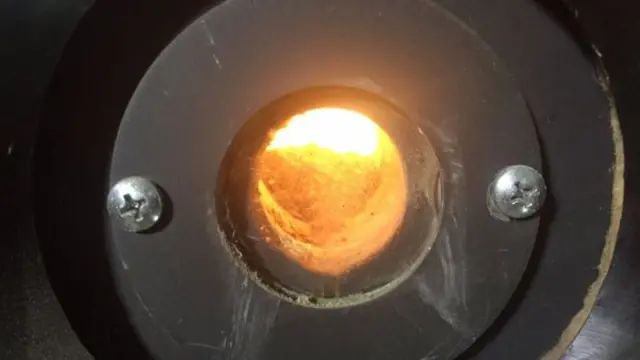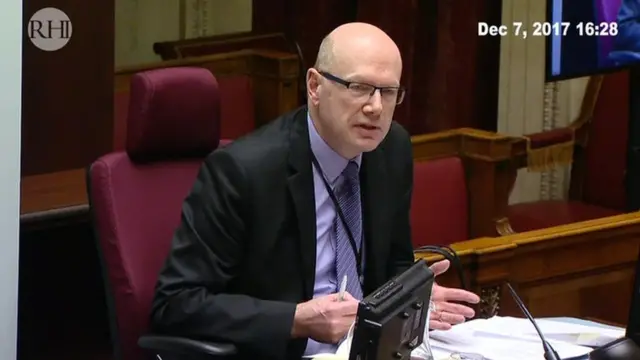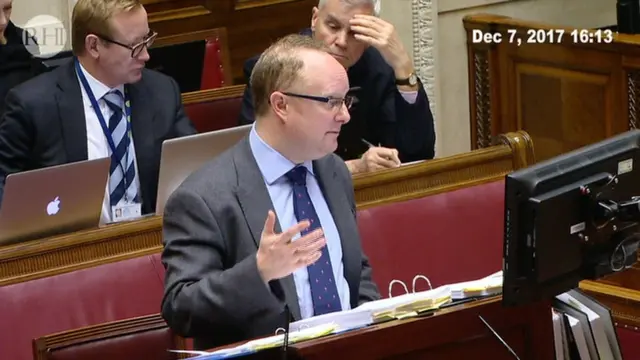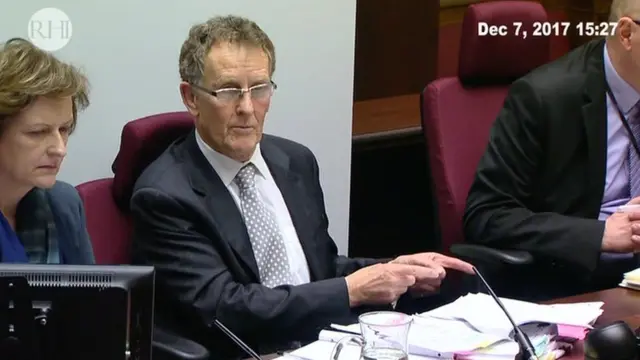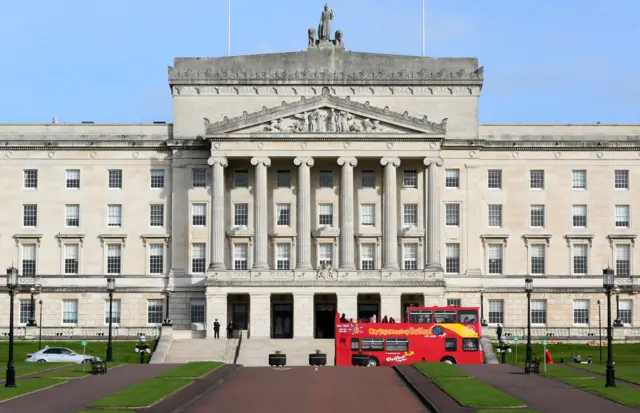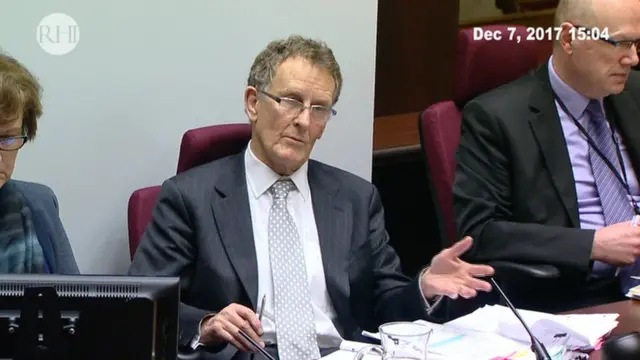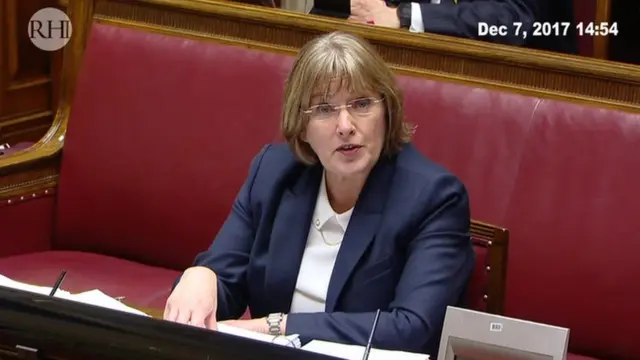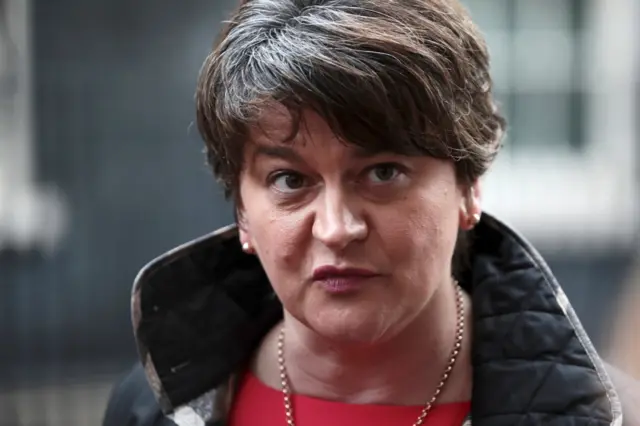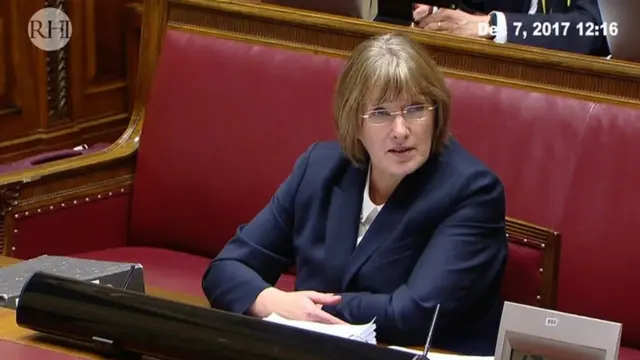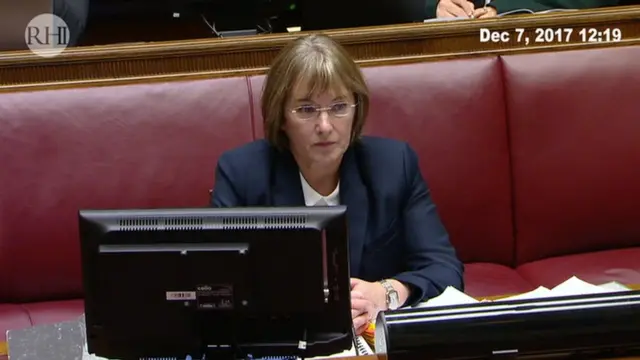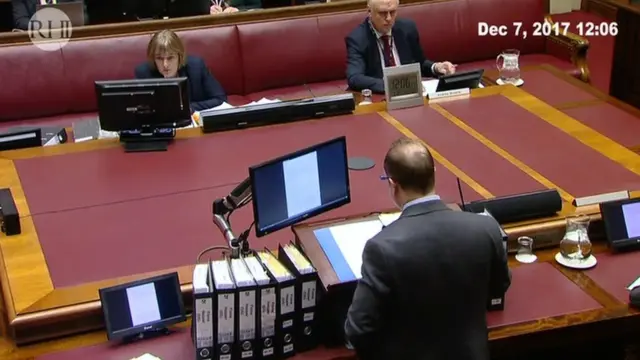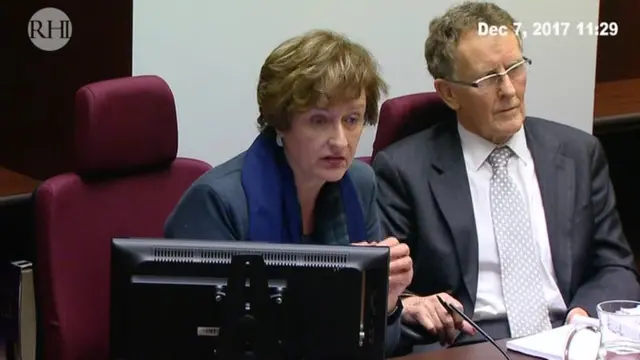That's all for today...published at 17:48 GMT 7 December 2017
There's much still to get through with Ms Hepper, says Mr Scoffield, so she'll probably have to come back another day.
"I think everybody could do with a finish at the moment," says Sir Patrick as he wraps it up for the day.

If we can make it up the hill through tomorrow's forecast snow, we'll be back in the chamber at 09:45 GMT.
And Tuesday's star witness, DETI official Peter Hutchinson, will be back in the spotlight - join us then.

